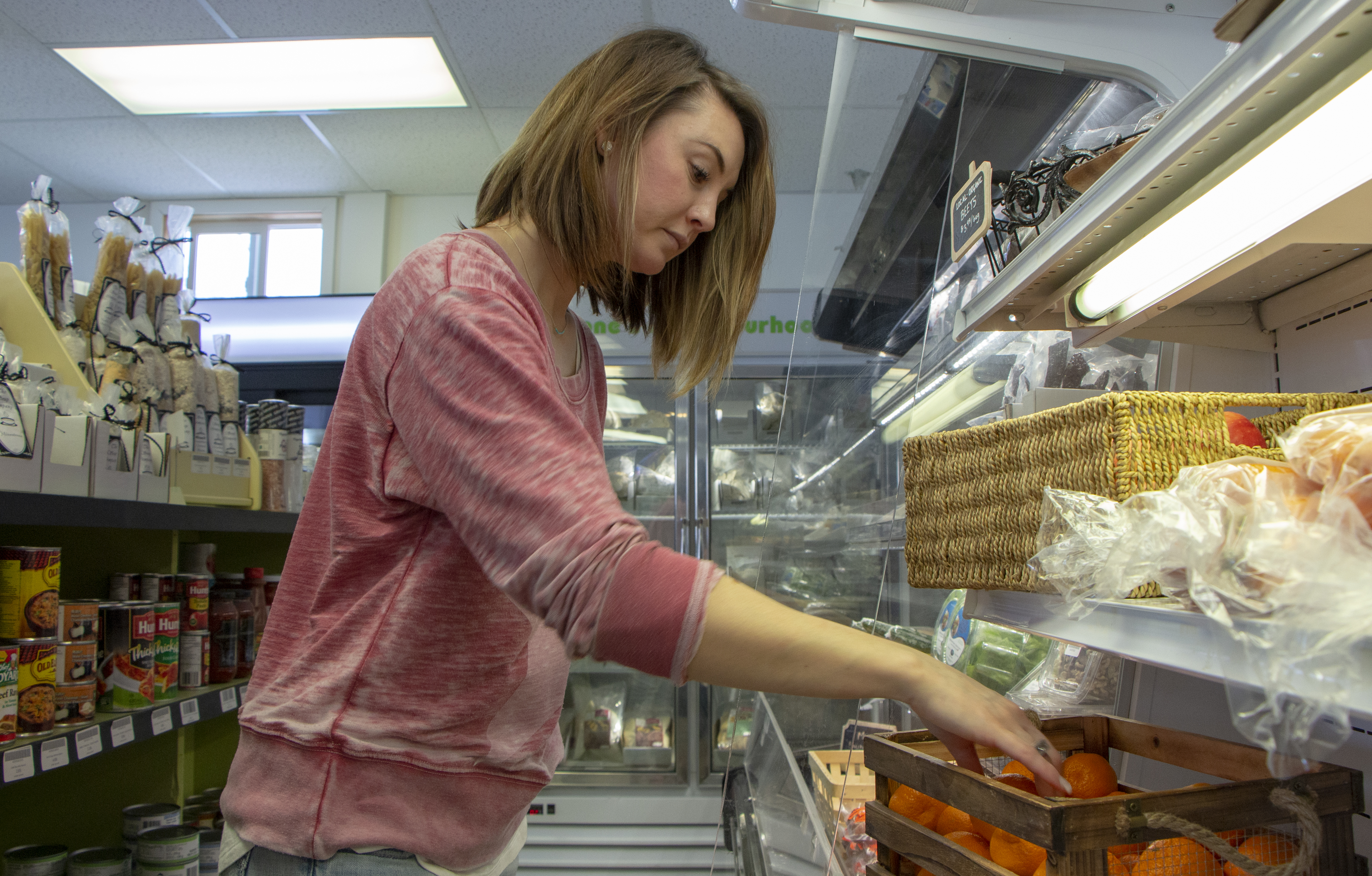Logan Shearer, owner of The Local Grocer, stocks a display of oranges at her store on Monday morning. Among other creative ideas, her store makes an effort to compost expiring products to help cut down on waste.
Over half of the food brought to grocery stores in Canada is wasted, but Lethbridge consumers have multiple options available to them to alleviate the issue.
A recent report by Second Harvest, a Toronto agency that redistributes excess food from supermarkets, found that 58 per cent of food sold to grocery stores in Canada is wasted before consumption.
“Twenty one billion dollars worth of food is wasted before it even hits store shelves, while another $10 billion is wasted at the consumer level,” says the report, released on Thursday.
In total, a staggering $49 billion dollars worth of food is lost or wasted by Canadians every year, averaging out to $1,766 per household. All of that waste can be avoidable, says Second Harvest CEO, Lori Nikkel.
The plethora of options available to Canadian grocery consumers to purchase their food has led them to devalue it, she added
“The abundance of food we produce has led us to dismiss its intrinsic value,” said Nikkel during a press conference.
On the consumer level, many options are available to consumers to help curb food waste after they purchase it from a store.
Logan Shearer, owner of Lethbridge’s The Urban Grocer, says it starts with being more aware.
“We try to compost and recycle as much as we can and there are lots of local producers in this area that can use [food]. If we are able to keep it in the local circuit, that will cut down on waste.”
The Urban Grocer specializes in selling locally-produced meats, vegetables and even coffee. Being a much smaller operation than major chains such as Safeway or Walmart, Shearer says it’s easier to keep track of what comes in and goes out of the store.
“Because we’re local and small, we’re more aware. The bigger you are, the bigger numbers you’re ordering and the amount of spoilage is going to go up.”
Sourcing from local producers also helps to reduce time spent in the supply chain, leaving more time for items to sit on store shelves before their expiry date.
“Another issue we have are the expiry dates,” Shearer says. “Just because the date may be today or yesterday, doesn’t necessarily mean the product is spoiled. A lot of times, I’ve dumped perfectly good milk down the drain just because the date has passed by.”
Shearer added that other cities have pick-up composting programs, something that would be simple and valuable for Lethbridge consumers to adopt.
“I try to think of ways to use food even if it’s not fit for sale,” Shearer says. “I have a friend that owns chickens, so I send my old milk out there and it’s perfectly fine for the chickens to consume.”
No matter where you get your groceries from, a little awareness as well as outside-the-box thinking can not only help alleviate food waste, but help save some money as well.

